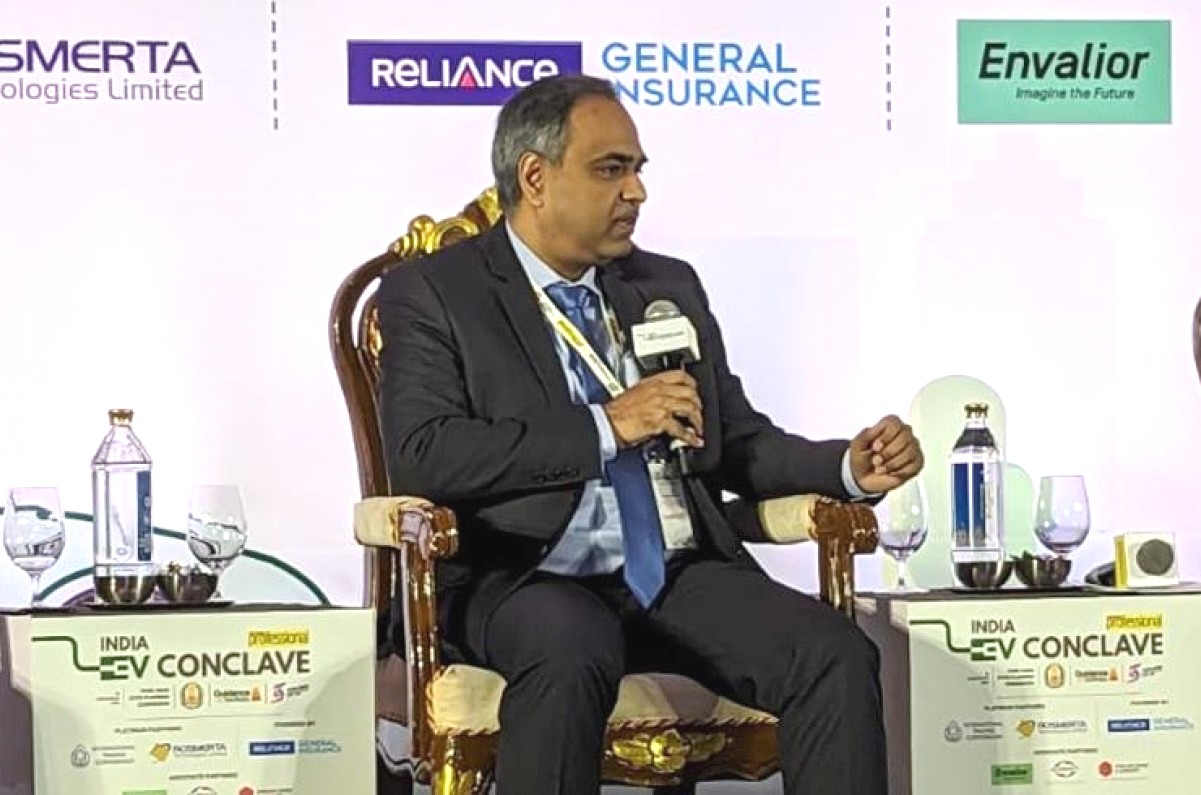At the Autocar Professional India EV Conclave, Tata Passenger Electric Mobility MD Shailesh Chandra said that transition to BEV not a choice, but an imperative.
The long-term story of Battery Electric Vehicle is not a choice, it is an imperative, says Shailesh Chandra, MD of Tata Passenger Electric Mobility. Considering all the nations that have signed up to be net carbon zero, he said, “there is no choice, it is only a matter of how fast the transition is going to happen.”
Having led the development of the electric car market in India over the last five years, Chandra says that “forecasting for new technology is very difficult to predict,” when it comes to penetration, hence it is up to companies to fix targets and work on it.
- Tata Motors aims to be net carbon zero by 2040
- Tata EVs account for 15-16 percent of total sales
- EV market still growing globally and in India
As Tata Motors’ Chandra explained, “If we have to be net carbon zero by 2070 as a nation then all actions have to start now. We, as a company, have taken (a target) of 2040 to be net carbon zero. I know that if we are not at 50 percent level at Tata Motors, I am not on my path. We are very clear that we will be 50 percent by 2030 as a company, and do everything to bring all ecosystem players together to work towards that kind of target.”
India, which is the third largest market in the world today, has a penetration of 2 percent for EVs, but Tata Motors has already seen EVs accounting for 15-16 percent of its total sales, and about 20 percent of its total revenues. “We are very confident with all the models that you know we are going to launch, we are absolutely on the path of hitting 50 percent,” assured Chandra.
The emphatic assertion comes at a time, when the overall electric vehicle market has hit a speed bump. Even in India, the transition from the old Nexon EV to the new Nexon EV led to some correction in the July to September 2023 quarter.
Chandra admitted that he has been “intrigued” at the “flurry of articles on gloom and doom around EVs”. He said his fact checked data showed a different picture. He said that in the first nine months of 2023, the BEV market worldwide has grown by 33 percent on a strong base. Key markets like China (26 percent), the top five markets in Europe (40 percent) and the US (64 percent) have seen strong double-digit growth.
“The fact is EVs are growing at a pace, one can always question the pace of growth at which one was expecting, as there has been a steep growth curve so far. When you compare it with 100 percent growth, there is a slight slowdown, because of local factors,” said Chandra.
To be sure, the US market is witnessing economic uncertainty and high interest rates, so there is a slowdown and due to forecasting error, there is a stock build-up. In Germany, one of the biggest markets in Europe, the subsidy has been reduced, hence there is a slowdown. Meanwhile, China is in a consolidation phase, post subsidy reduction.
As far as India goes, Chandra informed, that in the first half of this financial year, the car market has grown by 107 percent and Tata Motors too has grown over 76 percent. If anything, the market has started witnessing more action from rivals, which was very evident in high volumes seen Q1. Players like Mahindra, Stellantis and MG were filling up the channels with stock in Q1, and then which stabilised in Q2. This should not be seen negatively.
“I think the growth rates are going to be strong. The long-term story of BEV is not a choice. It is an imperative because all the nations have signed for net carbon zero. The same pressure is on all the OEMs. There is no choice. It is only a matter of how fast this is going to happen,” he reiterated.
Also see:
EV race is a marathon, not a sprint: Audi India head


